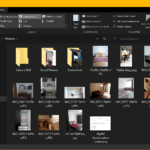
If you want to send, receive, or keep Bitcoin, you’ll need a cryptocurrency wallet. However, you must keep this Bitcoin wallet safe. Scammers, fraudsters, and burglars will always be drawn to your Bitcoin, regardless of whether you use a hardware, mobile, or desktop wallet – especially if you’re HODLing or dealing with large sums of money.
Some consumers, particularly newbies to the market, maybe lulled into a false sense of security because Bitcoin is a decentralized asset. They should concentrate on the fact that, because the asset is not managed by a centralized organization, Bitcoin holders are solely responsible for safeguarding and maintaining their wallets.
What is the purpose of a Bitcoin wallet, and how does it work?
Obtaining a Bitcoin wallet that is compatible with your operating system or device is the first step in receiving, storing, or transmitting Bitcoins. There are no actual Bitcoins held in a wallet because Bitcoin is a network with lists of unchangeable transactions. Instead, a wallet stores a private key, which is a secure digital code that only the owner knows.
This private key connects you, the owner, to a public key (or a collection of public keys) (numeric codes associated with a certain amount of Bitcoins).
There are eleven distinct methods for safeguarding your Bitcoin wallet.
1. Get yourself a hardware wallet.
Which Bitcoin wallet should you choose among the several options available?
For people who are particularly concerned about cyber threats, cold storage may be the best option.
Keeping your Bitcoins in a hardware wallet is a safe solution. Trezor and Ledger, for example, offer a variety of USB-like devices with security layers and encryption features pre-installed. Cyber attackers will have a difficult time accessing your private key because they are not linked to the internet.
2. Keep your private key in a safe place.
To protect your money, take your private key off the grid and keep it in the real world. Instead of storing your private key on an electronic device, write it down on a piece of paper.
3. Always use a secure connection to access the internet.
A large number of public infrastructures are insecure and vulnerable. If you have a Bitcoin wallet on your laptop, try using the hotspot on your phone instead, and avoid using public wifi at all costs.
Stick to private or well-known relationships where you can be sure your relationships aren’t at risk of being hacked. To protect their source code, most wallets employ app shielding strategies.
4. Malicious Software
4. Malicious Software
Malicious software can be discovered on any operating system, while Windows machines are more likely to be infected with a wider range of viruses. As a result, make sure your computer has up-to-date and dependable security software installed. Because most cyber assaults use viruses and malware to connect to your device and interfere with it, it’s vital to thoroughly inspect it before installing your wallet.
Protect your software up to date to keep yourself safe from malware.
5. Don’t click on any links that you don’t recognize or aren’t sure about.
If something doesn’t feel right, keep an eye on your internet activities and check the link of the site you’re on. Scammers have the ability to clone entire websites and use URL addresses that are remarkably identical to the actual ones. Double-check the URL address if you use an online wallet or any other service that asks you to enter your private key.
6. Use a strong password to secure your online wallet.
Choose your password carefully if you use an online wallet. Instead, create an alphanumeric combination that only you know. Consumers use the same password for several accounts in 52 percent of cases, according to studies. Make that your wallet password is unique.
7. Never share your private key with others.
The private keys are only accessible to you. Don’t give them out to anyone, and don’t entrust your transactions to someone else. Any offers or requests for you to give your private key to a third party or individual should be ignored.
8. Use a distinct wallet for your day-to-day transactions.
Using a second wallet that you can top up as needed is a great idea if you need to conduct tiny everyday transactions. You have the option of creating as many Bitcoin addresses or wallets as you want.
Sorting your transactions and keeping the most important ones separate will improve the security of your overall portfolio.
9. Use two-factor authentication for online wallets.
Most online wallets provide two-factor authentication, which you should always use. It’s a low-cost security solution with a big impact.
10. Always double-check the Bitcoin address.
10. Always double-check the Bitcoin address.
When completing transactions, always pay close attention to the recipient’s address. Malware programs can ‘intervene’ when you copy and paste a Bitcoin address and change the copied output to another address. If you’re not careful, you can end yourself sending your Bitcoins to someone else.
11. Make a copy of your digital wallet as a backup.
You’ll be able to access your wallet if you lose your smartphone or it fails, due to a backup. Make a backup copy of your data and store it somewhere safe. If your smartphone is stolen, you can restore access to your wallet by using the backup file. As a precaution, you can move the cash to another wallet.
Conclusion
Finally, you are solely responsible for the security of your Bitcoin wallet. Because the cryptocurrency market is always evolving and security methods are improving, you should take all necessary precautions and stay up to date on the latest security advancements and updates to keep your Bitcoin or another cryptocurrency wallet safe from hackers. The same may be said for other aspects of the crypto world, such as helium mining.
Disclaimer: The author’s opinions and observations should not be taken as financial advice. We do not offer financial product recommendations.








